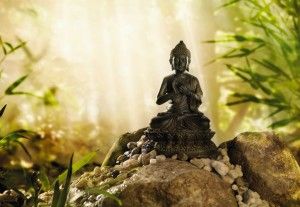Author Archives: blevine32
10 Ways to Feel Alive Naturally
10 Ways to Feel Alive Naturally:
Here are ten ways to feel alive naturally — I’ve included these amazing practices into my life in recent years. The results have been life changing!
Following these tips can help you feel more aware, more present, more connected, and help you feel alive naturally. Let us know what you think in the comments section!
1) Hydrate.
We are made of water. Over 75% of our brains are water. Water has so many positives that its hard to name them all. It helps regulate body temperature. It helps convert food to pure energy. It helps wake up inactive muscles. It helps remove waste. Drink water in the morning to wake up. Drink water before you eat to aid digestion. Drink more water. Feel alive naturally.
2) Get active.
Exercise is a natural anti-depressant. While exercising your body will begin to release chemicals and you will find yourself being more present and happy. Exercise is the key to longevity — it will make your bones stronger, your heart stronger, and your immune system purer. Move around daily.
3) Eat 6 Small Meals A Day.
After reading books such as In Defense of Food and The Omnivore’s Dilemma I feel educated enough to know that a diet based primarily around fruits and vegetables will make you feel the most fresh and present. (I still eat meat, just less than I used to). Make sure to wake up early enough to eat a healthy breakfast. Skipping meals will throw your metabolism out of balance, causing you to become faint and lose valuable energy.
4) Morning Creativity Practice.
A morning creativity practice is liberating. Carve out time each morning before your “real” day begins, and get in the habit of writing, working on your website, your novel or your home business at the same time each day. It will help you think and accomplish goals. You may find that you will organically become more creative and more energized to work on your project.
5) Set Tapas.
Tapas are another name for goals. I think of all the people setting New Year’s resolutions in western society and trying to go from zero to hero overnight. When you set an intention or tapas you will begin building your will power. Will power is discipline and self-control. Set small, attainable goals & achieve them. Begin to conquer your mind. Build your will power and nothing will stop you from what you want to achieve.
Suggestion: Do not tell people your tapas. In the western world we tell everyone and anyone our goals for social kudos. Keep your tapas b/w your most trusted confidants and your Source.
6) Be Organized.
Being organized is extremely important in having a stress free life. There are many advantages to being organized that include reduced stress, saving time, and working more efficiently. Being organized will equal more life and energy to focus on other things.
7) Sleep.
When you deprive yourself from sleeping 7-9 hrs a night you are increasing your risk for diabetes, heart attacks, and death. Carrying a sleep debt throughout the week with the hopes of paying it off on the weekend is a bad strategy. Move your work into the morning hours and feel alive naturally.
Suggestion: Turn off distractions before bed and give your body the much needed rest it wants.
8) Positive Energy.
Everything is energy. Energy is powerful enough to create a good or bad day. Everything you involve yourself in is a result of the energy you contribute. Consistently try to manifest your happiness. It will take more than a few days of positive thinking to make a significant impact on your long-term attitude patterns and help you feel alive naturally.
Suggestion: Surround yourself with positive people. It is said that you are the average of the 5 people you spend the most time with. Do you hang with negative people?
9) Meditation.
For anywhere from fifteen minutes to an hour (or more) each day, whether alone or with a group, sit in a quiet place with your eyes closed, focusing on your breath as it moves in and out. You may begin to develop dissociation between thought and identity. You may feel yourself becoming One with the world around you. You will “awake” with more energy.
10) Don’t Go the Programmed Route.
Wake up, breakfast, work, lunch, work, dinner, activity, sleep. It seems that 95% of Americans have that exact routine. Be different. Be that person you always wanted to be.
Travel. Explore. Read. Write. Learn. Meditate. Sleep during the day. Work at night.
Constantly make sure your pushing yourself to evolve and be different. Stand out in your life.
Excite yourself in different ways. Take risks. I’m gonna try to do the same.
Which of these practices do you utilize to feel alive naturally? What other tips do you have for the Lucid Practice Community?
~BL
Cameron Alborzian: Yoga – Liberation From the Body
I first discovered yoga over 25 years ago. My discovery was like that of many others in the West who find their way into this world, in that it was defined by my pursuit of the physical postures. I was working out in a gym and wanted to distract myself with a new form of exercise. I would go to yoga studios in whatever city I was in and grunt my way through many different sequences that usually induced soreness and a lot of sweat. When others found out that I practiced yoga, the first question they usually asked was, “Where do you take yoga classes?” I might have told them that I practice at Integral Yoga, Sivananda Yoga, or Siddha Yoga. Some time later, I was asked if I ever did “that hot yoga,” which of course was an outsider’s way of asking if I practiced Bikram. I did take one class back in the ’90s to see what it was like, but never went back again.
What I experienced back then is very common on several levels. When someone in the West is introduced to yoga, it’s usually through the pursuit of the physical postures so commonly known today. Whether someone starts to go to yoga studios after work, takes classes at their gym, or even practices along with a video, they focus most of their attention on a physical routine. What is also common, however, is for one person to ask another person what style of yoga they practice. In this question, one embraces the idea that yoga postures aren’t a simple series of exercises that everyone does in a similar way. Their question is likely driven by their wanting to know whether the other person practices a routine inspired by Vinyasa yoga at a place like Jivamukti, Hatha yoga at a place like Integral Yoga, Kundalini at a place like Yoga West, or by specific personalities like B.K.S. Iyengar, Pattabhi Jois, or Bikram Choudhury. And while both people might recognize a shared interest in seeking this physical discipline as an ancient practice grounded in the most sacred spiritual traditions of the Indian tradition, if they practice different styles they likely see themselves as different categories of people as well.
In the years following my introduction to yoga postures, I found other ways to explore my practice. I went on retreats to obscure places in which we attempted to meditate, I committed myself to fasting, I sat in silence for weeks, and I chanted in community sessions like kirtans. But these efforts were far less consistent than the physical act of practicing postures — until about 10 or so years after my introduction. Over the years I had learned how the practice of yoga centers not on one of many different approaches to developing the body but on liberating the mind from the body. But I never found the discipline to truly pursue this aspect of it at the time. It was 10 years after my introduction when I went from doing yoga to following the yogic path.
An afflicted mind seeks the outer world to attain a sense of contentment and peace, which is evidenced by those of us who are excessive in our lifestyle. We mistakenly perceive that we will be happy if and when we get more things. But a similar sense of materialism can be assigned to those who attach themselves to a certain style of yoga postures. Postures were never supposed to become the centerpiece of the entire practice, and it was only through the ego that people started to focus on them. As a result, more postures have been invented in the last few centuries. While yoga as a tradition is intended to teach us how to liberate our mind from the body, through these attachments we’re trying as hard as possible to stay in it!
This conundrum underlines yoga’s importance. If we remain attached to a certain style of yoga postures, we remain attached to the material aspect of our existence. When we’re no longer attached to this aspect, we’re able to use yoga for its intended purpose and live in a state of supreme joy as a result. We’re able to enjoy the health and vitality that a balanced physical regimen inspires, but we don’t get attached to one specific approach to that regimen over the other. We look at postures, meditation, and everything else born from these traditions as tools for ending a perpetual state of suffering and moving closer to pure consciousness. And once we attain that state, we no longer concern ourselves with whether someone practices the same style as us or not. We move from using a physical exercise to become spiritual to knowing we are spiritual and using the physical aspect to keep our body as healthy as possible. With a healthy body, we’re able to practice our spirituality.
But why has this happened? Why has Western culture taken one part of a spiritual practice and made it just as material as a regimen that sculpts one’s body into a perfect shape? We live such material lives because we live at a time of greatest material density. In my next blog, I will explain how this has come to pass.
A Serious Man
What could make a professional basketball player return a six-figure sum to his team in midseason? Ask former University of Pennsylvania star Ibby Jaaber.
A story of devout faith.
Check it out — here.
Hello Compost
A city like New York, with a population of over 8 million, generates a gargantuan amount of landfill waste. Of that throwaway mess, about 35% is organic matter. And while the city plans to roll out a new composting program this fall–albeit, a voluntary one–New York’s recycling and composting rates have long trailed behind smaller cities, especially on the West Coast.
Hello Compost is a proposed program that offers incentives to change behavior. Under Hello Compost, low-income families, who are throwing away upwards of $1,300 in biodegradables, will be able to turn in compost for produce credits.
Aly Blenkin and Luke Keller, cofounders of HC, and a fellow Parsons design student, developed a multitiered system: Families put food waste into freezable, odor-blocking collection bags. Those bags go to Project EATS (a New York-based nonprofit focused on urban agriculture), where they are weighed and assigned a value that translates into credits for fresh produce, grown by local farmers. Project EATS uses an iPad app to track progress and gamify the program–banking on the human nature to compete, which makes tracking tools like Nike’s FuelBand so successful.
Keller says, “Solving for the incentive to participate has been and will continue to be one of the most important challenges we face moving forward.”
If Hello Compost takes off, it can tangibly improve the kitchens, living conditions, and diets of its users. Blenkin and Keller, of course, see a bigger picture: Changing behavior. “We need to re-imagine the role of food waste from being a smelly, unattractive side effect of eating to an attractive resource for residents to positively impact their community and to help put fresh food on the table,” Blenkin says.
7/14 Quote: Ronald Reagan
“In our obsessions with antagonisms of the moment, we often forget how much unites all the members of humanity. Perhaps we need some outside, universal threat to make us recognize this common bond. I occasionally think how quietly our differences worldwide would vanish if we were facing an alien threat from outside this world.”
~Ronald Reagan




